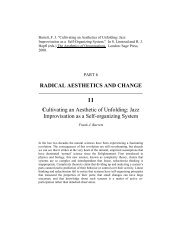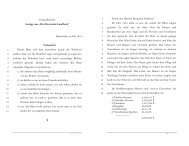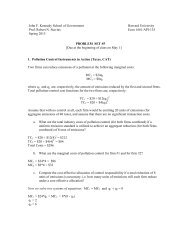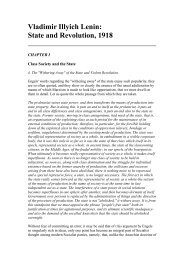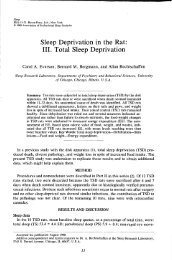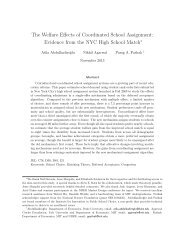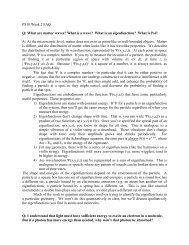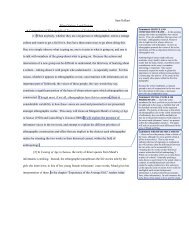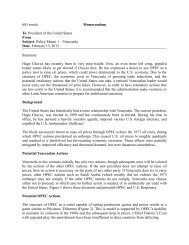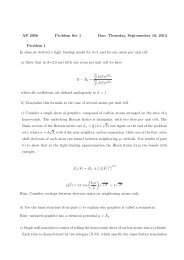mental health- counseling-1.pdf - iSites - Harvard University
mental health- counseling-1.pdf - iSites - Harvard University
mental health- counseling-1.pdf - iSites - Harvard University
Create successful ePaper yourself
Turn your PDF publications into a flip-book with our unique Google optimized e-Paper software.
NASPA Journal, Vol. 41, no. 1, Fall 2003<br />
less effective time management and use of study resources. They were<br />
also less likely to persist when faced with distraction or difficulty and<br />
less likely to use effective learning strategies such as seeking academic<br />
assistance. Randall and Dobson (1993) determined that individuals<br />
with high levels of psychopathology have impaired information-processing<br />
skills, which are a critical component of academic performance<br />
and success.<br />
According to Kessler, Foster, Saunders, and Stang (1995), 5% of college<br />
students prematurely end their education due to psychiatric disorders.<br />
They estimated that an additional 4.29 million people in the<br />
United States would have graduated from college if they had not been<br />
experiencing psychiatric disorders. Four types of disorders—Anxiety,<br />
Mood Disorders, Substance Abuse, and Conduct Disorder—were all<br />
“significant predictors of failure” (Kessler et al., 1995, p. 1,029).<br />
Svanum and Zody (2001) also found that substance abuse disorders<br />
were most strongly associated with lower academic performance GPA.<br />
Although retention theory has traditionally emphasized the importance<br />
of academic and social adjustment as key factors in persistence,<br />
personal adjustment and <strong>mental</strong> <strong>health</strong> factors should not be overlooked.<br />
A 6-year longitudinal study of college students found that personal<br />
and emotional adjustment was an important factor in retention<br />
and predicted attrition as well as or better than academic adjustment<br />
(Gerdes & Mallinckrodt, 1994). Students who had left the university<br />
in poor academic standing reported difficulties with anxiety and sleep<br />
(a symptom often associated with depression and other <strong>mental</strong> <strong>health</strong><br />
problems). Transition and adjustment difficulties, isolation, loneliness,<br />
and self-doubt—issues that can be addressed in a <strong>counseling</strong> setting—<br />
have also been identified as negative influences on retention<br />
(Anderson, 1985; Tinto, 1985).<br />
However, when students receive help for their psychological problems,<br />
<strong>counseling</strong> can have a positive impact on personal well-being,<br />
academic success, and retention. A survey conducted by the<br />
<strong>University</strong> of Idaho Student Counseling Center (2000) found that<br />
77% of students who responded reported that they were more likely<br />
to stay in school because of <strong>counseling</strong> and that their school performance<br />
would have declined without <strong>counseling</strong>. Ninety percent of the<br />
respondents reported that <strong>counseling</strong> helped them meet their goals at<br />
the university and helped reduce stress that was interfering with their<br />
172



